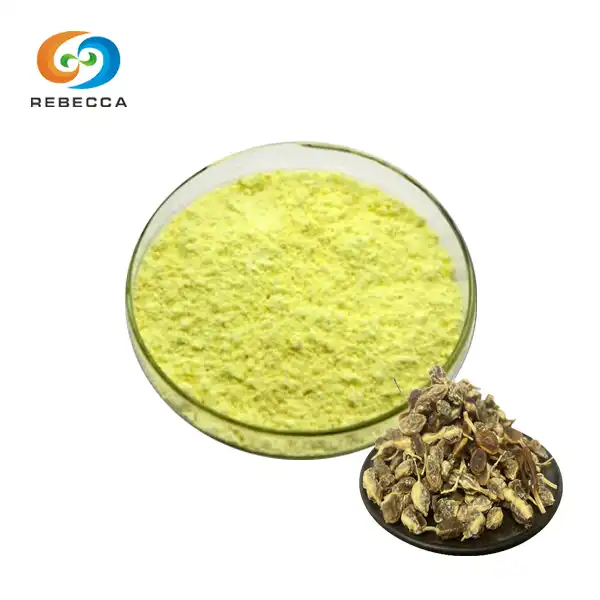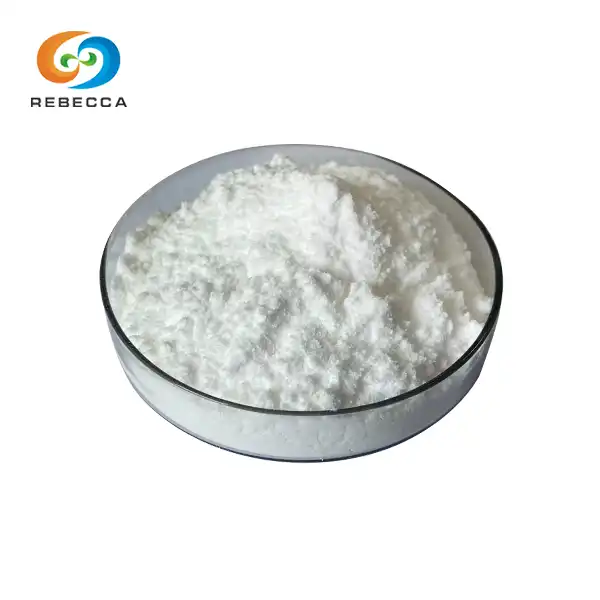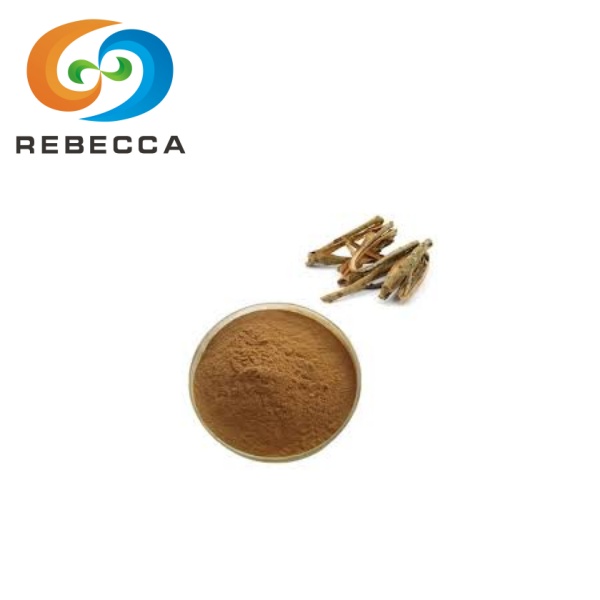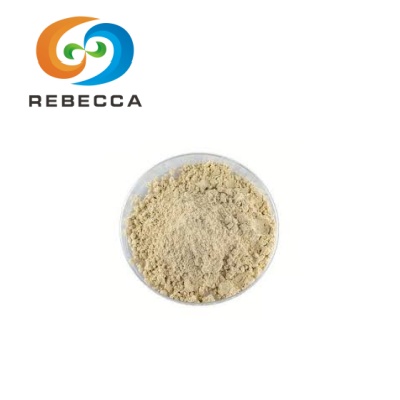Gastrodin Powder Uses
gastrodin powder, a natural compound extracted from the rhizome of Gastrodia elata Blume, has been gaining attention for its versatile uses in various fields. This bioactive compound has a long history in traditional medicine and is now finding applications in modern dietary supplements, cognitive health formulations, and scientific research. In Rebecca's comprehensive blog, we'll explore the diverse uses of gastrodia elata extract across different domains, shedding light on its potential benefits and applications.
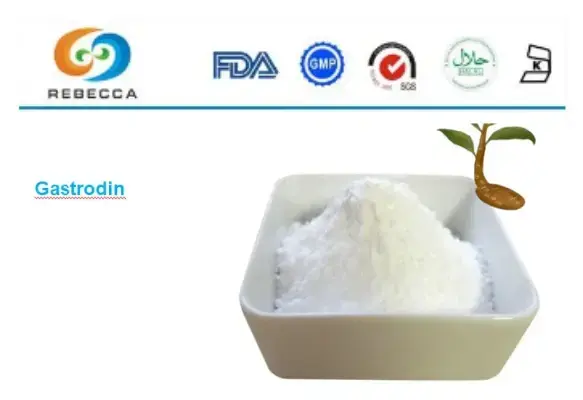
Dietary Supplements
Gastrodin powder has become increasingly popular in the dietary supplement industry, where it is used for various potential health benefits. As a natural compound with a long history of traditional use, gastrodin appeals to consumers seeking plant-based alternatives to synthetic supplements.
One of the primary uses of dietary supplements is for potential neuroprotective effects. Research suggests that gastrodin may help protect brain cells from damage caused by oxidative stress and inflammation. This property has led to its inclusion in supplements aimed at supporting overall brain health and potentially reducing the risk of age-related cognitive decline.
It is also used in supplements targeting cardiovascular health. Some studies indicate that gastrodin may help regulate blood pressure and improve circulation. These potential benefits make it an attractive ingredient for formulations designed to support heart health and overall cardiovascular well-being.
Another area where gastrodin is gaining traction in the supplement industry is stress and anxiety management. Some research suggests that gastrodin may help modulate neurotransmitters involved in mood regulation and stress response. As a result, it's being incorporated into supplements designed to promote relaxation and emotional well-being.

Its potential anti-inflammatory properties have also led to its use in supplements targeting inflammation-related issues. While more research is needed to fully understand its mechanisms, preliminary studies suggest that gastrodin may help mitigate chronic inflammation, a factor associated with various health concerns.
In the realm of sleep support, some supplement manufacturers are exploring its potential to improve sleep quality. While research in this area is still emerging, early studies suggest that gastrodin may influence neurotransmitters involved in sleep regulation.
It's important to note that while gastrodia root extract shows promise in these areas, more extensive clinical trials are needed to fully establish its efficacy and optimal dosage for various health applications. Consumers interested in trying gastrodin supplements should consult with a healthcare professional, especially if they have pre-existing health conditions or are taking medications.

Traditional Medicine
The use in traditional medicine, particularly in Traditional Chinese Medicine (TCM), dates back thousands of years. The herb Gastrodia elata, from which gastrodin is derived, has been a staple in TCM practices, valued for its diverse therapeutic properties.
In TCM, Gastrodia elata, known as Tian Ma, is classified as an herb that "extinguishes wind" and "unblocks channels." This classification reflects its traditional use in treating conditions associated with what TCM practitioners describe as "internal wind," such as dizziness, headaches, and tremors.
One of the primary traditional uses of Gastrodia elata has been in the treatment of headaches and migraines. TCM practitioners have long prescribed preparations containing this herb to patients suffering from chronic headaches, believing in its ability to calm the liver and subdue yang. Modern research has begun to explore the potential mechanisms behind these effects, investigating how gastrodin might influence neurotransmitters and cerebral blood flow in ways that could potentially alleviate headache symptoms.
Another significant traditional application of Gastrodia elata has been in the management of epilepsy and seizures. In TCM, these conditions were often attributed to an imbalance of yin and yang energies, with Tian Ma being used to restore harmony. Contemporary studies on gastrodia root extract have shown potential anticonvulsant properties, providing a scientific basis for this long-standing traditional use.
The herb has also been traditionally used to treat vertigo and balance disorders. TCM practitioners have long observed its apparent ability to alleviate dizziness and improve stability in patients. This traditional application aligns with modern investigations into its effects on cerebral blood flow and neurotransmitter regulation.
In addition to its neurological applications, Gastrodia elata has been used in TCM to address cardiovascular issues. It has been prescribed for conditions such as hypertension and palpitations, reflecting an understanding of its potential to influence the cardiovascular system. Current research on its effects on blood pressure and heart function provides an interesting parallel to these traditional uses.
The traditional use of Gastrodia elata in TCM also extends to the treatment of rheumatic conditions and joint pain. While the exact mechanisms were not understood in ancient times, modern research is exploring its potential anti-inflammatory properties, which could explain its traditional use in these applications.
It's important to note that while traditional medicine has long recognized the potential benefits of Gastrodia elata and, by extension, gastrodin, traditional uses should be considered in conjunction with modern scientific evidence. The integration of traditional knowledge with contemporary research offers exciting possibilities for understanding and utilizing its full potential in healthcare.
Cognitive Health Formulations
As our understanding of brain health continues to evolve, there's growing interest in natural compounds that may support cognitive function. Gastrodia root extract has emerged as a promising ingredient in cognitive health formulations, with research suggesting potential benefits for various aspects of brain health and function.
One of the primary uses in cognitive health formulations is for their potential neuroprotective properties. Studies have indicated that gastrodin may help protect brain cells from oxidative stress and inflammation, two factors that are thought to contribute to cognitive decline and neurodegenerative diseases. This protective effect makes it an attractive ingredient for formulations aimed at supporting long-term brain health and potentially reducing the risk of age-related cognitive issues.
Memory enhancement is another area where gastrodin is being used in cognitive health formulations. Some research suggests that gastrodin may influence neurotransmitter systems involved in memory formation and retrieval. While more studies are needed to fully understand these effects, preliminary findings have led to the inclusion of gastrodin in supplements designed to support memory and overall cognitive performance.

Gastrodin is also being used in formulations targeting improved focus and concentration. Some studies suggest that gastrodia root extract may help enhance cerebral blood flow, which is crucial for optimal cognitive function. This property could potentially contribute to improved mental clarity and cognitive performance.
In the realm of mood and stress management, it is being incorporated into cognitive health formulations that address the cognitive impacts of stress and anxiety. Chronic stress and mood disorders can negatively impact cognitive function, and its apparent ability to modulate neurotransmitters involved in mood regulation could make it a valuable component in these formulations.
Some cognitive health formulations are exploring the potential synergistic effects of combining gastrodin with other neuroprotective compounds. For example, combinations of gastrodin with antioxidants, omega-3 fatty acids, or other herbal extracts are being studied for their potential to provide comprehensive support for brain health.
It's important to note that while its potential cognitive benefits are promising, more extensive clinical trials are needed to fully establish its efficacy and optimal use in cognitive health formulations. As research continues, we may see more refined and targeted applications in products designed to support various aspects of cognitive function and brain health.
Research Applications
The growing interest in gastrodin's potential health benefits has sparked numerous research applications across various fields of study. Scientists are exploring the compound's properties and potential uses in diverse areas of medical and biological research.
In neuroscience research, gastrodia root extract is being studied for its potential neuroprotective effects. Researchers are investigating how gastrodin might protect neurons from damage caused by oxidative stress, inflammation, and other harmful factors. These studies could have implications for understanding and potentially treating neurodegenerative diseases such as Alzheimer's and Parkinson's.
The field of neuropharmacology is also showing interest in gastrodia root extract. Scientists are exploring how the compound interacts with various neurotransmitter systems in the brain. This research could lead to new insights into the treatment of neurological and psychiatric disorders, potentially opening up new avenues for drug development.
Cardiovascular research is another area where gastrodin is being investigated. Studies are looking at its potential effects on blood pressure regulation, vascular health, and cardiac function. This research could contribute to our understanding of cardiovascular diseases and potentially lead to new therapeutic approaches.

In the field of immunology, researchers are exploring its potential anti-inflammatory properties. Understanding how gastrodin might modulate immune responses could have implications for treating inflammatory disorders and autoimmune diseases.
Metabolic research is also benefiting from studies on gastrodia elata extract. Some investigations are looking at its potential effects on glucose metabolism and insulin sensitivity, which could have implications for diabetes research.
In addition to these specific areas, gastrodia elata exract is also being used as a tool in broader biological research. Its unique properties make it useful for studying various cellular and molecular processes, contributing to our overall understanding of biological systems.
As research on gastrodin continues to expand, we may see new and unexpected applications emerge. The compound's diverse effects and apparent safety profile make it an attractive subject for scientific inquiry across multiple disciplines.
Rebecca Gastrodin Powder For Sale
For researchers, manufacturers, and other professionals interested in harnessing the potential of gastrodia elata extract, Rebecca Bio-Tech offers high-quality gastrodin powder for sale. As a professional manufacturer, Rebecca Bio-Tech produces gastrodia elata extract with an impressive 99% purity, ensuring a premium product for various applications.
The high purity of Rebecca Bio-Tech's production makes it particularly suitable for research applications where precise concentrations and minimal impurities are crucial. This level of purity also makes it an excellent choice for manufacturers of dietary supplements and cognitive health formulations who prioritize quality and efficacy in their products.
Rebecca Bio-Tech's commitment to quality extends beyond just the purity of their product. Their manufacturing processes adhere to strict quality control standards, ensuring consistency and reliability in every batch of gastrodin powder they produce. This dedication to quality makes Rebecca Bio-Tech a trusted supplier for businesses and researchers alike.

For those in the pharmaceutical industry, the high purity of Rebecca Bio-Tech's gastrodin powder may be particularly appealing for drug development and clinical research. The minimal presence of impurities can help ensure more accurate results in studies and potentially streamline the development process for gastrodin-based therapeutics.
Supplement manufacturers looking to create innovative products may find Rebecca Bio-Tech's gastrodia elata exract to be an excellent ingredient for their formulations. The high purity allows for precise dosing and potentially enhanced bioavailability, which could translate to more effective products for consumers.
Researchers interested in exploring the potential benefits and applications of gastrodin can rely on Rebecca Bio-Tech's product for their studies. The consistent high quality of their gastrodin powder can help ensure reproducible results across different experiments and research groups.
For more information about Rebecca Bio-Tech's gastrodin powder, including pricing, minimum order quantities, and shipping details, interested parties can contact the company directly at information@sxrebecca.com. Their team can provide detailed product specifications and assist with any inquiries regarding the use of their gastrodin powder in various applications.
References
1. Kumar, H., Kim, I. S., More, S. V., Kim, B. W., & Choi, D. K. (2013). Natural product-derived pharmacological modulators of Nrf2/ARE pathway for chronic diseases. Natural product reports, 30(10), 1365-1383.
2. Liu, Y., Gao, J., Peng, M., Meng, H., Ma, H., Cai, P., ... & Xu, Z. (2018). A review on central nervous system effects of gastrodin. Frontiers in pharmacology, 9, 24.
3. Xu, X., Lu, Y., & Bie, X. (2007). Protective effects of gastrodin on hypoxia-induced toxicity in primary cultures of rat cortical neurons. Planta medica, 73(7), 650-654.
4. Chen, P. J., & Sheen, L. Y. (2011). Gastrodiae Rhizoma (tiān má): a review of biological activity and antidepressant mechanisms. Journal of traditional and complementary medicine, 1(1), 31-40.
5. Zhan, H. D., Zhou, H. Y., Sui, Y. P., Du, X. L., Wang, W. H., Dai, L., ... & Zhao, H. L. (2016). The rhizome of Gastrodia elata Blume–An ethnopharmacological review. Journal of ethnopharmacology, 189, 361-385.
